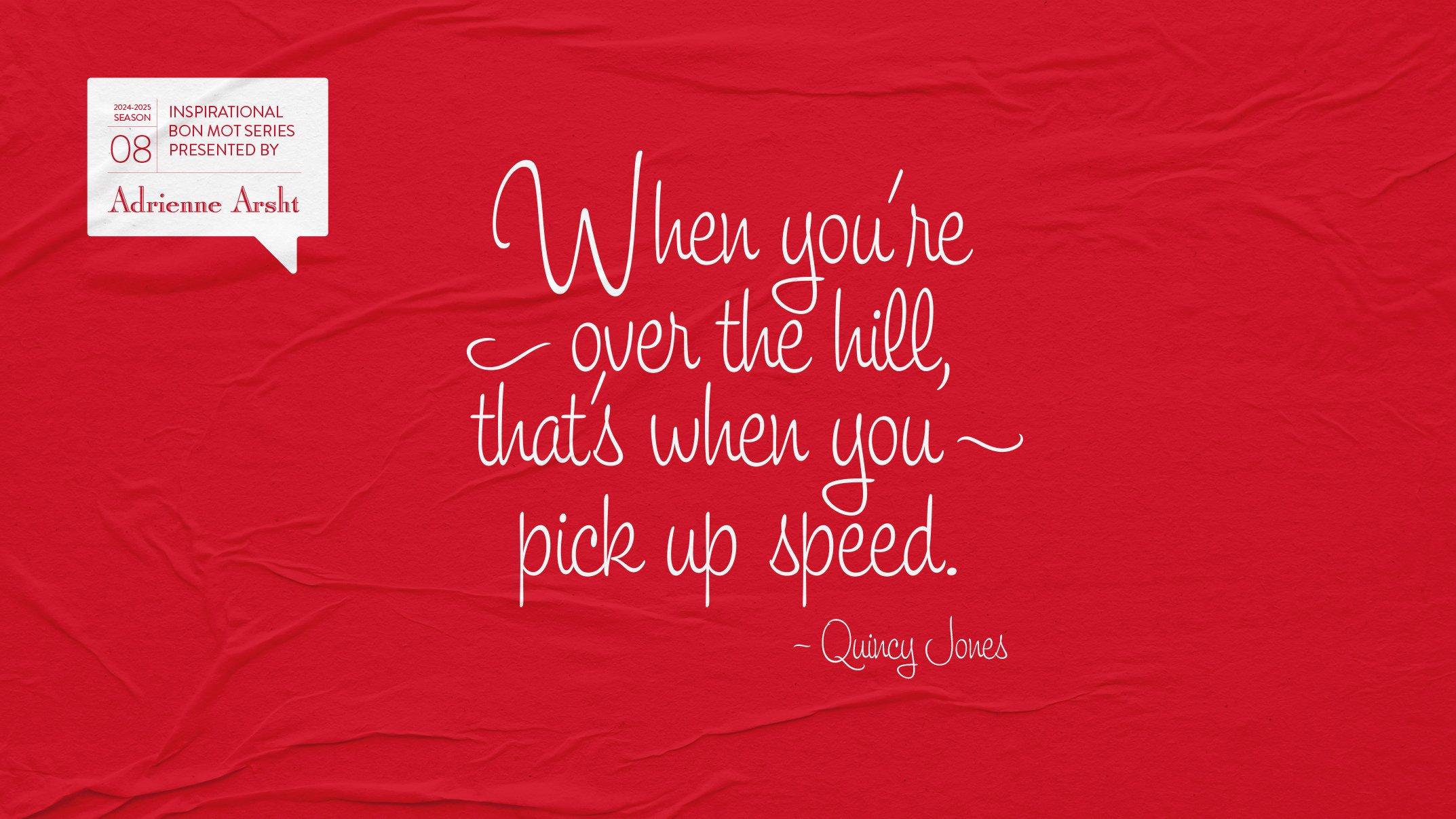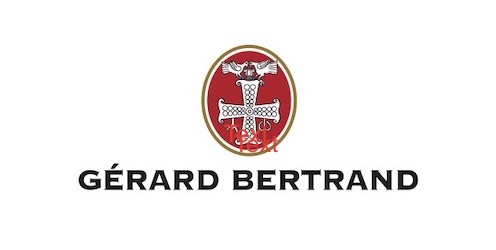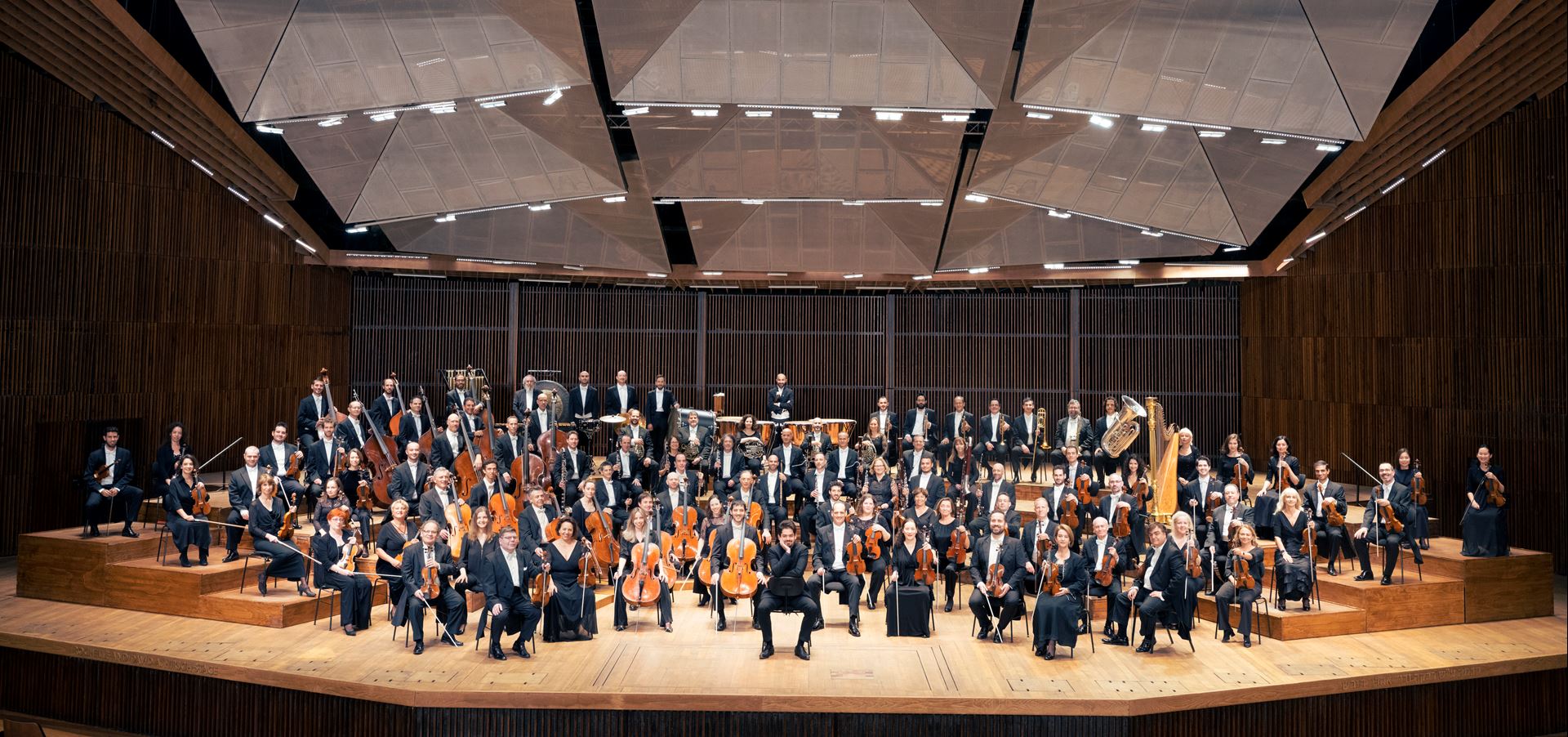

Adrienne Arsht Center for the Performing Arts of Miami-Dade County presents
Israel Philharmonic
Lahav Shani, Music Director
The music director's position is endowed by The Rosalinde and Arthur Gilbert Foundation
Tzvi Avni
(Born 1927)
Prayer
Max Bruch
(1838-1920)
Kol Nidrei
Haran Meltzer, cello
Leonard Bernstein
(1918-1990)
Halil
Guy Eshed, flute
—Intermission—
Piotr Ilyich Tchaikovsky
(1840-1893)
Symphony No. 6 in B Minor
I. Adagio – Allegro non troppo
II. Allegro con grazi
III. Allegro molto vivace
IV. Finale: Adagio lamentoso
The Israel Philharmonic's 2025 United States Tour is underwritten by American Friends of the Israel Philharmonic and sponsored by Pfizer.
Exclusive Tour Management and Representation:
Opus 3 Artists
470 Park Avenue South, Ninth Floor North, New York, NY 10016
Opus3Artists.com
Notes on the program
PRAYER
TZVI AVNI (BORN 1927)
In 1940, Tzvi Avni asked his mother to buy him a harmonica for his bar mitzvah. He did not, he told her, want an accordion. “I was attracted to music all my life, but I never had the luck really to get in touch with music,” Avni recalled in a 1994 interview. “But this harmonica, I mastered it very quickly, and I immediately started composing.”
While he would later study composition at institutions such as Columbia University and with instructors such as Aaron Copland and Lukas Foss, Avni said at 13 years old he “didn’t know any music, any notes, any nothing.” He created melodies on the harmonica, and wrote them down using a notation he’d invented.
The following year, with some money he’d saved, he bought a mandolin. “There, too, I learned by ear,” Avni said, “and since the technique of the mandolin is very different from the harmonica, I again invented another kind of notation for the mandolin. Then, I bought a recorder.” His neighbors, no doubt, were ecstatic.
Avni was born in Saarbrücken, Germany, which was under French rule following World War I. When he was 7, his family moved to Mandatory Palestine. Today, Avni is one of Israel’s most awarded and performed composers, with dozens of orchestral works, chamber pieces and choir and solo vocal compositions to his credit. He is also regarded for his work in electronic music, which he studied in the 1960s at Columbia at the urging of experimental composer Edgar Varèse.
“Prayer,” from 1961 (and revised in 1969), is among Avni’s earliest orchestral works. It’s also one of his most popular compositions. “Songs and other things that I composed at that time are really perhaps some of my most wholesome pieces in a way,” Avni said in that 1994 interview, “because later I got interested in more advanced ways of composing, in more modern trends, in electronic music, and this was another stage of my life.”
“Wholesome” does not in this case mean “simple” or “safe.” At just under 10 minutes, “Prayer” progresses from contemplative to dramatic; the effect can feel like awakening from a reverie under midday sunlight. Conceived more than 60 years ago, the piece still sounds unconventional and modern. It has retained the sense of discovery and freedom that produced it.
“At that time nobody could dream that somebody is going to play the pieces you write,” Avni recalled. “You compose a fugue for organ, or let’s say for orchestra. Who is going to play that? An organist maybe still was available, but if you write a string quartet or something it was very hard to get a performance, to hear it, and especially in orchestration. So I could experiment in orchestration by these arrangements, try out all kinds of things, and, you know, you acquire a technique.”
KOL NIDREI
MAX BRUCH (1838-1920)
Max Bruch was popular in his day. A sucker for melody, the Prussian composer reportedly drove choral societies in 19th century Germany wild with titanic orchestrations such as Beautiful Ellen and Odysseus. A contemporary critic hailed him as a musical heir to Mozart and Mendelssohn. His Violin Concerto No. 1 was practically born a standard.
Fame, of course, is fleeting, and Bruch’s music proved “more timely than timeless,” as a New York Times critic put it in 1989, thanks to the composer’s penchant for writing “music easily assimilated by his contemporaries.” Puzzled by the work of Tchaikovsky and intimidated by Brahms, Bruch himself suspected that his destiny was to be a man of the hour and not an artist for the ages.
“I predict that as time goes on,” Bruch told musician and critic Arthur M. Abell, “[Brahms] will be more appreciated, while most of my works will be more and more neglected. Fifty years hence, he will loom up as one of the supremely great composers of all time, while I will be remembered chiefly for having written my G minor violin concerto.”
Brahms reportedly had a less charitable assessment of his colleague: “Bruch is shortsighted. He sees only to the next laurel wreath.”
Bruch was correct about the lasting effect of his violin concerto, a frequently performed and recorded work whose fans include musicians Joshua Bell and Hilary Hahn. The composer might also have mentioned his Kol Nidrei, written for cello and orchestra and based on the prayer that begins Yom Kippur services. Aramaic for “All Vows,” Kol Nidrei is a declaration of regret for unfulfilled vows and unkept promises and a call to nullify all future vows, prohibitions and oaths.
Bruch, a Protestant, reportedly was introduced to the Kol Nidrei melody by a cantor in Berlin, where the composer published his piece in 1881. In a letter to his publisher, Fritz Simrock, Bruch compared the work to another composition he had finished at about the same time. “This piece is a little companion piece to the Scottish Fantasy” he wrote, “as it, like that, expands a given melodic material in an artistic manner.” Bruch did not use “given” lightly. While he later told Abell, “My most beautiful melodies have come to me in dreams,” Bruch emphasized to Simrock that Kol Nidrei should be published as “by MB” and not “composed by.” For that, too, he should be remembered.
HALIL
LEONARD BERNSTEIN (1918-1990)
The first public performance of Leonard Bernstein’s “Halil,” subtitled “Nocturne for Solo Flute, Orchestra and Percussion,” took place in 1981 in Jerusalem. Bernstein conducted the Israel Philharmonic and flutist Jean-Pierre Rampal through the 16-minute piece, for which he provided the following composer’s note:
“This work is dedicated ‘to the spirit of Yadin and to his Fallen Brothers.’ The reference is to Yadin Tanenbaum, a 19-year-old Israeli flutist, who in 1973, at the height of his musical powers was killed in his tank in The Sinai. He would have been 27 years old as this piece is written: kol z’man — ‘for all the time.’
“ ‘Halil’ (the Hebrew word for flute) is formally unlike any other work I have written, but is like much of my music in its struggle between tonal and non-tonal forces. In this case I sense that struggle as involving wars and the threat of wars, the overwhelming desire to live and the consolations of art, love and the hope for peace. It is a kind of night-music which, from its opening 12-tone row to its ambiguously diatonic final cadence, is an ongoing conflict of nocturnal images: wish-dreams, nightmares, repose, sleeplessness, night-terrors — and sleep itself, Death’s twin brother.
“I never knew Yadin Tanenbaum, but I know his spirit.”
“Halil” made its American debut a month later as part of a Fourth of July program by the Boston Symphony Orchestra. At Bernstein’s request, the piece was performed in place of his own scheduled solo piano performance of “Rhapsody in Blue.”
Reviewing the work’s New York premiere the following March, a New York Times critic praised Bernstein’s score as “redolent at times of Ravel” and reminiscent of Mahler, particularly “the plaintive five-note figure that appears throughout [that] functions as a unifying cell, rather like the simple turn that dominates the final movement of Mahler’s Ninth Symphony.”
SYMPHONY NO. 6 IN B MINOR
PIOTR ILYICH TCHAIKOVSKY (1840-1893)
“The ultimate essence of the plan of the symphony is life,” Piotr Tchaikovsky wrote of his sixth and final symphony. “First part—all impulse, passion, confidence, thirst for activity. Must be short (the finale death—result of collapse). Second part love: third disappointments; fourth ends dying away (also short).”
As if all that weren’t demanding enough for performers and listeners of the symphony alike, the circumstances surrounding the work’s creation, its 1893 premiere and its composer’s fate are so heavy as to seem oppressive. Nine days after Tchaikovsky conducted the symphony’s debut performance in Saint Petersburg, he died unexpectedly at the age of 53. The cause of his death remains a mystery, with theories ranging from cholera to suicide.
Tchaikovsky’s state of mind in the year leading up to his death has also long been a subject of debate. Some believe he took his own life over concerns that he would be outed as homosexual. Others have concluded that he was depressed over his fellow Russians’ failure to recognize his greatness. Some have even argued that the composer spent his final months spooked over premonitions of an early death.
But as The Guardian’s Tom Service reported in 2014, Tchaikovsky in 1893 was experiencing “a deep, personal satisfaction that he hadn’t felt in years,” and had noted in several letters that the Sixth Symphony, aka “Pathétique,” was “the best thing I ever composed or shall compose.” While the symphony certainly concerns death, Service argued, it’s not necessarily about Tchaikovsky’s death—rather, it’s not only about Tchaikovsky’s death.
“That this is a piece about a struggle between the life-force and an inevitable descent to an exhausted physical and emotional demise is obvious to anyone who has heard it and lived through it,” Service wrote, adding, “In the Sixth, Tchaikovsky meets that inexorable descent head-on, and in so doing he creates a new shape for the symphony, in one of the most audacious and boldest compositional moves of the 19th century. … We do this symphony a terrible injustice if we only see and hear it through the murky prism of myth, story and half-truth that now swirls around accounts of what happened in the composer’s final days.”
— Jake Cline
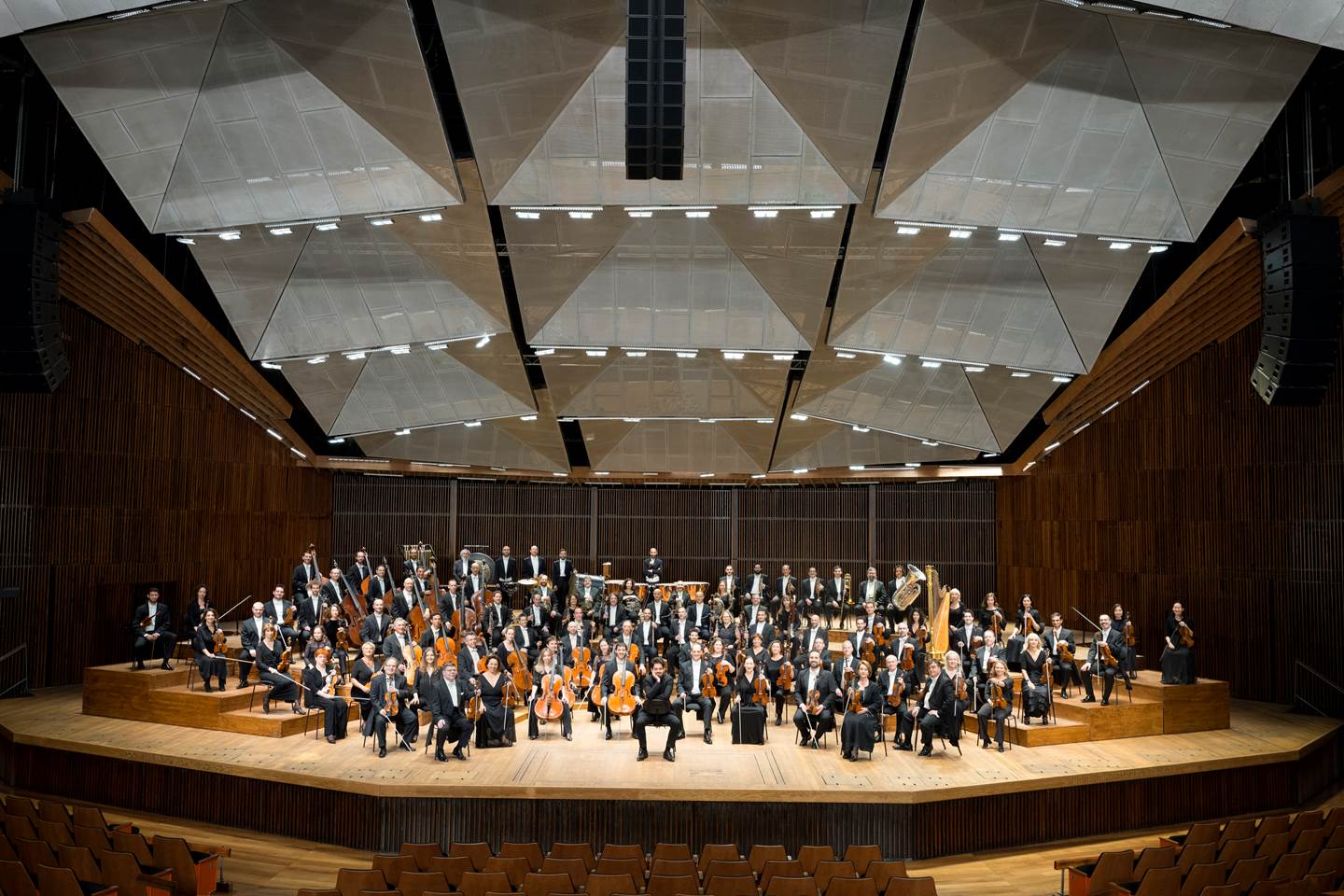
Israel Philharmonic
Israel Philharmonic is one of Israel’s oldest and most influential cultural institutions. Since its founding in 1936, Israel Philharmonic has dedicated itself to presenting the world’s greatest music to audiences in Israel and around the world. Founded by Polish violinist Bronislaw Huberman, Israel Philharmonic represents the fulfillment of his dream "to unite the desire of the country for an orchestra with the desire of the Jewish musicians for a country." Huberman spent countless hours persuading first-chair musicians of Eastern European and German orchestras, who had lost their jobs as a result of Nazism, to immigrate to Palestine. In doing so, Huberman created an "orchestra of soloists" that continues to act as a dynamic, global community for musicians from across the world. Huberman invited the greatest conductor of the time, Arturo Toscanini, to conduct the opening concert, performed December 26, 1936 at the Levant Fair in Tel Aviv.
Major soloists and conductors have always performed with the Israel Philharmonic. Martha Argerich, Yefim Bronfman, Leonidas Kavakos, Itzhak Perlman, Kirill Petrenko, Gil Shaham, Sir András Schiff and Pinchas Zukerman, among many others, are regular guests of the orchestra. Leonard Bernstein maintained close ties with the orchestra from 1947. The memory of him conducting the orchestra in front of 5,000 soldiers on the Negev dunes after the battle for Beersheba is a historic moment. In 1988, the IPO bestowed on him the title of laureate conductor, which he retained until his death in 1990. Yoel Levi and Gianandrea Noseda served as principal guest conductors.
Israel Philharmonic is Israel’s premier cultural ambassador and travels extensively throughout the world, particularly to countries where there is little or no Israeli representation. In December 2022, Israel Philharmonic performed a historic concert in Abu Dhabi at the invitation of the Abu Dhabi Ministry of Culture, celebrating the Abraham Accords. Other historical visits include the orchestra's first tour to Russia in April 1990 and first tour to India in December 1960. The orchestra performs in the most important venues and festivals in Europe, the United States, South America, China and Japan.
The orchestra gives more than 100 performances every year in Israel, where concert series are presented in Tel Aviv, Jerusalem and Haifa. The IPO KeyNote Education and Outreach Program brings classical music to young audiences.
In 1969, Maestro Zubin Mehta was appointed music advisor to the IPO. In 1977, he became its music director. Maestro Mehta retired in October 2019. Following his retirement, IPO named him music director emeritus. Lahav Shani became music director in the 2020-21 season.

Lahav Shani
Music Director, Israel Philharmonic
Lahav Shani has been chief conductor of the Rotterdam Philharmonic Orchestra since 2018, the youngest chief conductor in the orchestra’s history. He was previously principal guest conductor of the Vienna Symphony Orchestra. In February 2023, the Munich Philharmonic appointed him as their new chief conductor, starting from September 2026.
His close relationship with Israel Philharmonic started in 2007, when he performed Tchaikovsky’s Piano Concerto under the baton of Zubin Mehta, and continued in 2010, when Maestro Mehta invited him to join Israel Philharmonic on its Far East tour as pianist, assistant conductor and double bass player. In 2013, after winning the Gustav Mahler International Conducting Competition in Bamberg, the orchestra invited him to step in to conduct their season opening concerts.
His performances as guest conductor include concerts with the Vienna Philharmonic, Berlin Philharmonic, Gewandhaus Orchestra, Munich Philharmonic, Bavarian Radio Symphony, London Symphony, La Scala Philharmonic, Boston Symphony, Chicago Symphony, Royal Concertgebouw Orchestra, Philadelphia Orchestra, Budapest Festival Orchestra, Orchestre de Paris and Philharmonia Orchestra. In March 2022, he conducted Munich’s Benefit concert in aid of Ukraine with Anne-Sophie Mutter and the three orchestras of the city: Bavarian State Orchestra, Bavarian Radio Symphony and Munich Philharmonic. In the 2022-23 season, he returned to the Munich Philharmonic for a concert series in Munich and Switzerland and also began his three-year residency at the Konzerthaus Dortmund.
Born in Tel Aviv in 1989, Shani began his piano studies at age 6 with Hannah Shalgi before continuing with professor Arie Vardi at the Buchmann-Mehta School of Music. He studed conducting under professor Christian Ehwald and piano with professor Fabio Bidini at the Academy of Music Hanns Eisler, Berlin, and was mentored by Daniel Barenboim during his time there. As a pianist, he has performed as a soloist with Barenboim, Mehta and Gianandrea Noseda. He has play-directed piano concerti with many orchestras, including the Vienna Philharmonic, Philharmonia Orchestra, La Scala Philharmonic, Staatskapelle Berlin and Royal Concertgebouw Orchestra. He also has considerable experience performing chamber music and in recital. A regular performer at the Verbier Festival, Shani has appeared at the Aix-en-Provence Easter and Jerusalem Chamber Music Festivals, and in duo recitals with Martha Argerich.
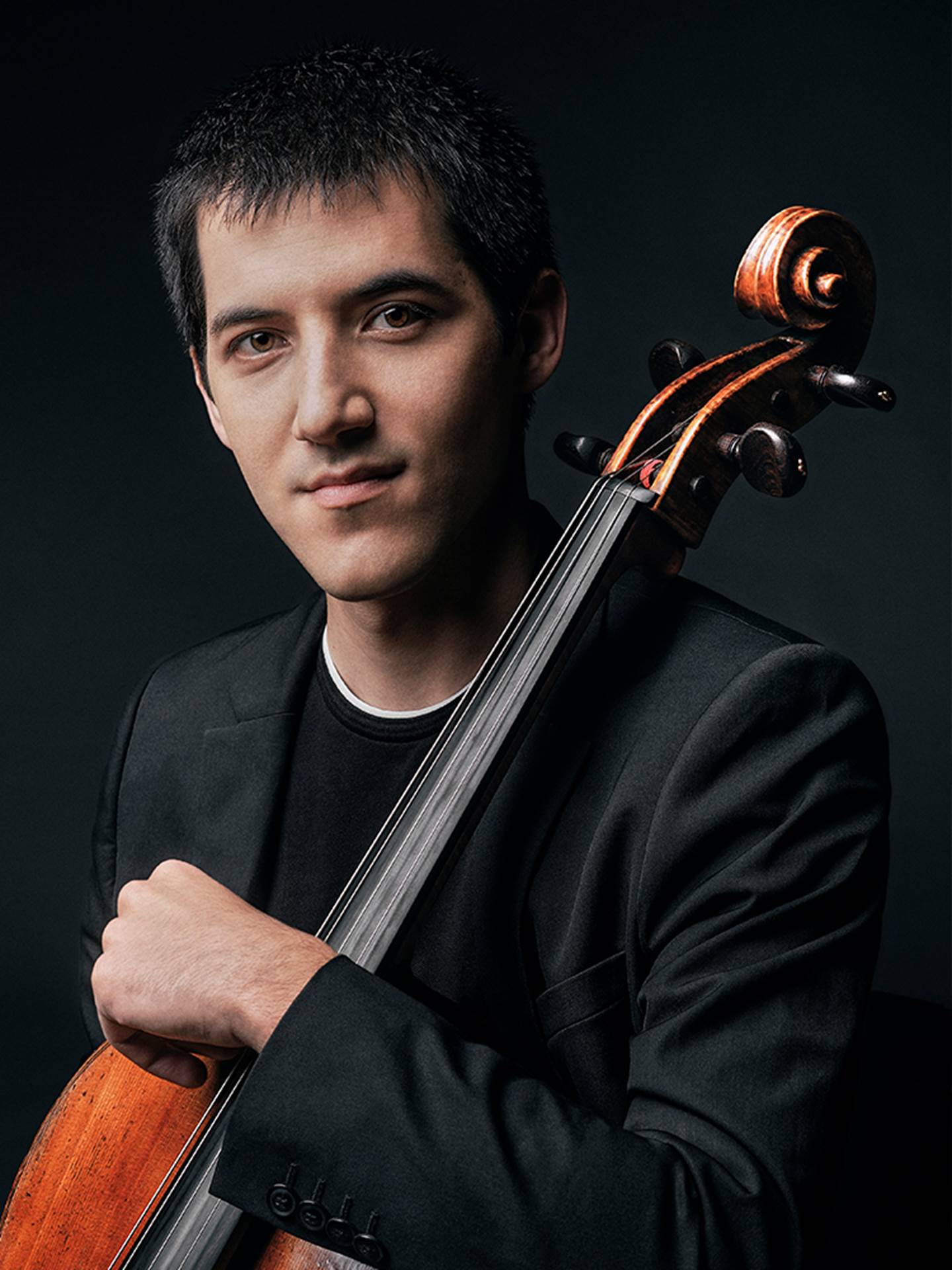
Haran Meltzer, cellist
Haran Meltzer is principal cellist of Israel Philharmonic. He has appeared as soloist with Israel Philharmonic under the baton of Zubin Mehta and other conductors, as well as with many other orchestras in Israel. Meltzer won the first prizes in the Aviv (Israel 2018), Davidov (Latvia 2018) and Gabrielli competitions (Germany 2019). He has received scholarships from the America-Israel cultural foundation since 2007 and from "Zfunot Tarbut" foundation since 2009. As a chamber musician, he has collaborated with Itzhak Perlman, Miriam Fried, Guy Braunstein, Hagai Shaham, Amihai Grosz, Zvi Plesser, Ohad Ben-Ari and Alon Goldstein. Meltzer studied with Luba Rabin in the Kfar Saba Conservatory, Zvi Plesser in the Israel Conservatory of Music and Claudio Bohorquez in Hanns Eisler School of Music in Berlin. He also has studied with Emanuele Silvestri and Felix Nemirovsky. He plays on a cello loaned by Israel Philharmonic and a bow loaned to him by the America-Israel Cultural Foundation.
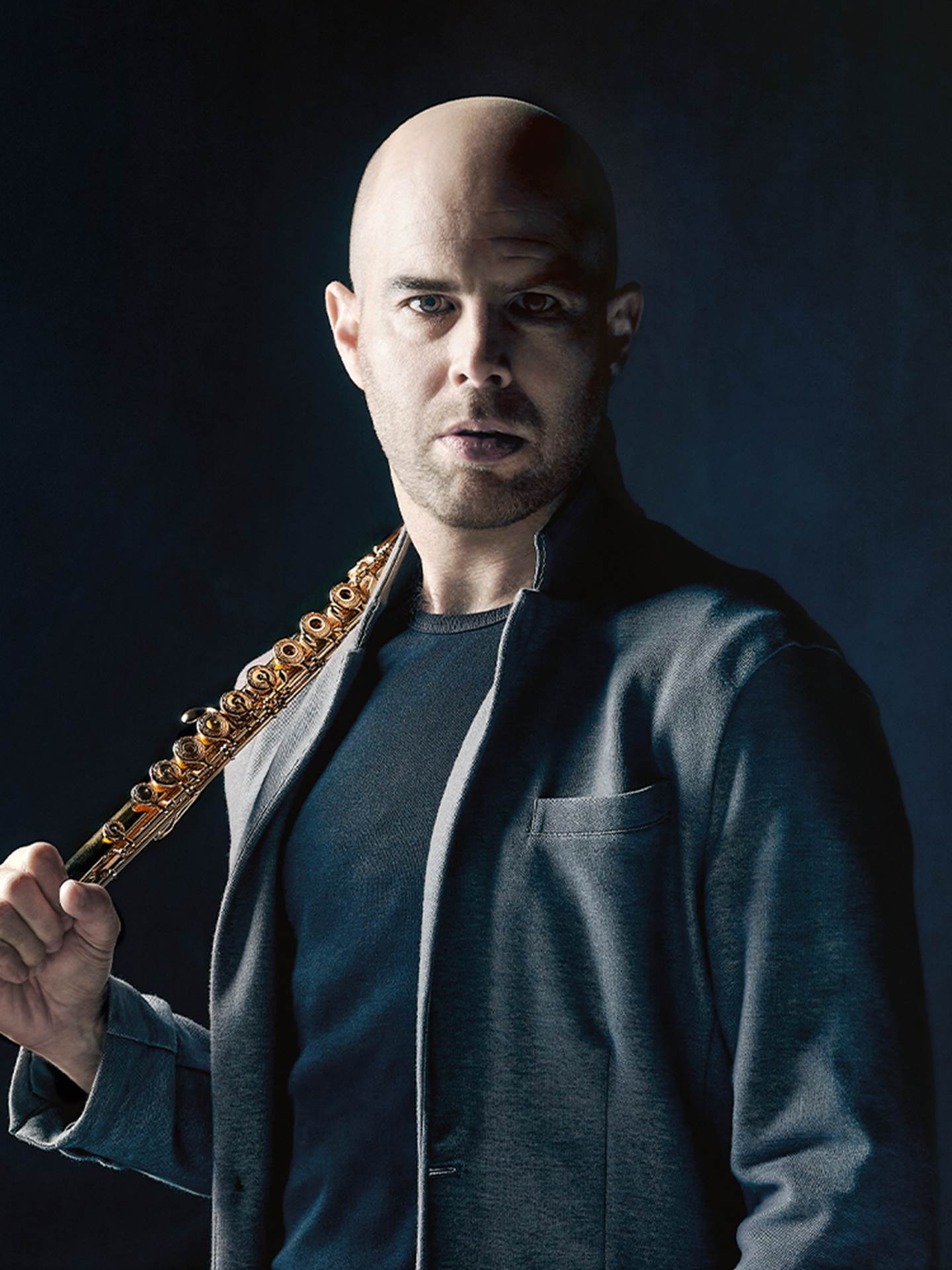
Guy Eshed, flutist
Guy Eshed served as principal flutist in the Maggio Musicale Fiorentino Orchestra conducted by Zubin Mehta, the Berlin State Orchestra conducted by Daniel Barenboim, the Swedish Radio Symphony Orchestra conducted by Daniel Harding and the Manchester Camerata Orchestra conducted by Douglas Boyd. After his military service, he was principal flutist in the Haifa Symphony Orchestra, and since 2001 he has been principal flutist of the West-Eastern Divan Orchestra under the direction of Barenboim. He is regularly invited to play as guest principal flutist with orchestras such as the Bavarian Radio Orchestra, the Los Angeles Philharmonic, the Mahler Chamber Orchestra, the London Philharmonic, the Rotterdam Philharmonic, the Bamberg Symphony and the La Scala Orchestra. As a soloist, he has performed with orchestras in Israel, including Israel Philharmonic, and in Europe, including at the prestigious Salzburg and Lucerne festivals. As a chamber music player, he was a founding member of Ensemble 360 (England), with whom he also recorded, participated in important festivals and performed with renowned artists, including Barenboim, Elena Bashkirova, Kirill Gerstein, Guy Braunstein and the soloists of the Berlin Philharmonic. He also recorded for BBC radio stations, Sweden, Germany and Israel, and released four CDs. Eshed regularly won scholarships from the America-Israel Cultural Foundation, and received a special grant of excellence from the Toepfer Foundation in Hamburg.
Israel Philharmonic
Israel Philharmonic Orchestra
IPO Management: Yuval Shapiro (Chm'n), Jonathan Gertner, Boaz Meirovitch
Secretary General: Yair Mashiach
Artistic Director: Alisa Meves
Musicians' Council: Sharon Cohen (Chm'n), Jonathan Gertner, Noam Massarik, Boaz Meirovitch, Dan Moshayev, Gili Radian-Sade, Hagai Shalom, Yuval Shapiro, Ari Þór Vilhjálmsson
Orchestra Personnel Manager: Michal Bach
Asst. Personnel Manager: Yael Glazer, Katya Dashkov Totev
Inspector: Hadar Cohen
Librarian: Akkad Izre'el
Operational and Stage Management: Amit Cohen, Denis Rubin
Project Manager: Iris Abramovici
Artistic Operations Department: Nitzan Vardi
Marketing Manager: Yael Yardeni-Sela
Marketing: Liz Fisher, Ohad Dan
Opus 3 Artists
Opus 3 Artists
Robert Berretta, Managing Director
Benjamin Maimin, Chief Operating Officer
Jemma Lehner, Associate Manager
Miles Bentley, Administrative Assistant
Opus 3 Artists - Israel Philharmonic Orchestra Tour
Leonard Stein, Consulting Producer
John Pendleton, Company Manager
Carol Patella, Assistant Company Manager
Sarah Vardigans, Advance Company Manager
Don Irving, Stage Manager
Peter Katz, Touring Coordinator
Classical Conversations
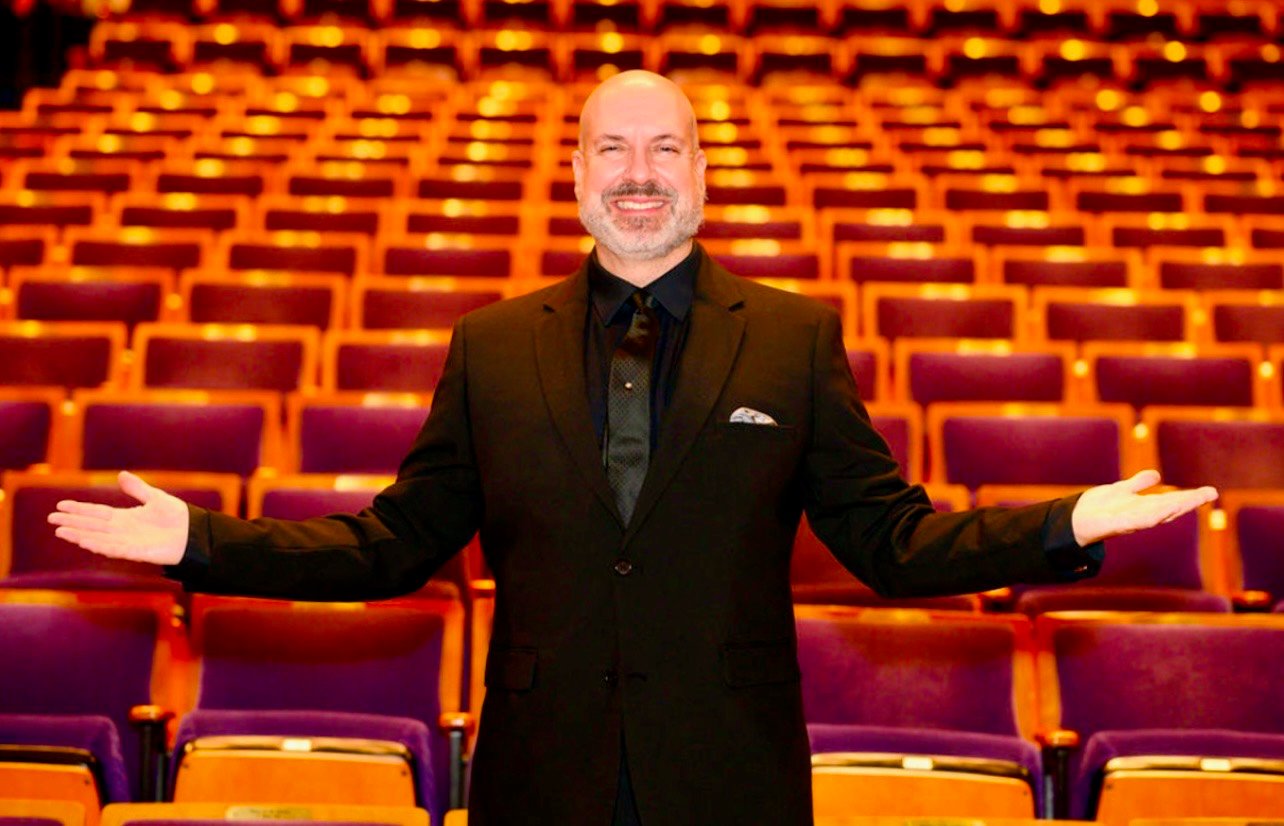
Scott Flavin enjoys an incredibly versatile musical career. Since 1998, he has been professor of violin at the Frost School of Music, where he teaches violin, conducting and chamber music. As a violinist, he is in demand as a concertmaster, chamber musician and recitalist, and is first violinist of the internationally acclaimed Bergonzi String Quartet and violinist of PULSE Trio, in addition to the Bergonzi Trio. Flavin is resident conductor of The Henry Mancini Institute Orchestra, and regularly appears on the podium in concert, on television and on recordings. He is also an active arranger, composer and writer. His recordings include chamber music on the Naxos and Centaur labels, and commercial recordings on Sony, EMI and Warner Bros., including appearances on over a dozen Grammy Award-winning albums.
Presenting Sponsor
![]()
Supporting Sponsors


Institutional Sponsor





